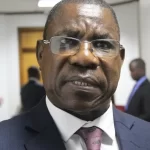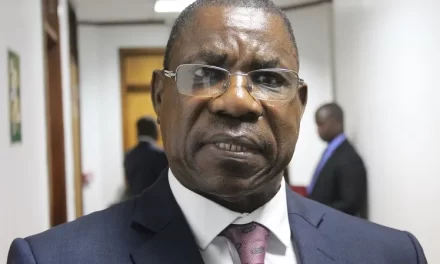
Malawi’s economic growth – in the face of power outages

The country’s intermittent power supply is no longer news in our
media. Even young children are aware of load shedding events unfolding the country over. Countless efforts are being made by power supplier to deal with or minimise the effects of the country’s power crisis.
In the private sector, most companies have had to take the most difficult but inevitable solution –firing employees. This was a reality to Mr John Masiyano in the last quarter of this year.
The only reason he could get for his firing was that he was redundant.
As a man, he stood composed and let unseen tears roll down his inner chicks, but with loads of unanswered questions in his mind.
“How will I feed my wife and our children? Who will pay school fees for our two children in village and the others at the private secondary school? How will I finish construction of the house I started building in the village? How will I support the many relatives that invaded my house from the village on weekly basis? How will I pay my tithe and pledges at church?
None of the questions seemed to have an answer, nothing close to it actually?
The development led him quietly to his house to share the sad news with his wife and possibly to start thinking of a plan B. He had to look for other avenues to keep life going. The situation facing Mr Masiyano is the same for hundreds of others.
“Surely, what is the rationale of keeping a huge workforce that will lie idle for the greater part of the period when there is reduced production due to power outages. Most of the times the machines are idle,” explains an employer at makata industrial area in Blantyre.
The employer who complains that they were operating at less than 10 percent of a normal day due to the power interruptions, fears that with the intermittent power supply, the machines will not operate to full capacity and can also be destroyed by unannounced power outages.
While he could not quantify the loss arising from intermittent power outages, the employer nonetheless contends that the business loss is quite huge and has significantly impacted on production.
The unprecedented power cut in the country has been a topic of debate, leading to a series of accusations and counter accusations to this effect. In 2010, the country recorded 63 days of power outages, making it one of the worst energy-inefficient countries in sub-Saharan Africa. Meanwhile, the future is even gloomier in view of Escom’s extensive load shedding programme which is reported that it will go up to February next year due
to the continued low water levels in the lower shire despite the start of the rainy season.
A Malawi business climate survey commissioned by the Malawi confederation of chambers of commerce and industry {MCCCI} says erratic supply is a major obstacle to doing business in the country.
The MCCCI’s CEO Chancellor Kaferapanjira said; this situation is stifling private sector growth and is a disincentive to the economy. Industry players are losing millions to blackouts; but this also means that they cannot compete favorably against foreign companies. There are supply deadlines to meet, quality standards to beat. However, all these are being affected by electricity outrages.”
Kaferapanjira said most companies that depend on export have been weakened by the down turn, and has scared away serious international investors putting the already ailing economy in a tight corner.
“The issue of power is critical. We have had a lot of complaints from the public and investors. The fact is that there is insufficient capacity and load shedding is now the order of the day. As at now, it is a big challenge because investors cannot come to Malawi,” he said.
Like in any other economy, power upply is a critical economic ingredient. In the absence and high price of the source as has been the case, said Kaferapanjira, there was little reason to be optimistic of taming inflation which his currently at 24.7%.
On the other hand, a study done by the millennium challenge corporation {MCC} says the lack of reliable power supply is costing Malawi US$215.6 million {33 billion} a year in lost industrial production. Other surveys indicate that power transmission losses are above the minimum acceptable level of seven percent. This is largely due to lack of major investment in additional generation capacity to meet the projected demand.
The bad news does not end there. A recent World Bank report notes that Malawi faces serious power security problems because 98 percent of its electricity is hydro-based and is generated on the siltation-prone shire river.
Over a century ago when electricity was first produced in Malawi, there were several efforts over the years to improve generation capacity. Previous attempts to change the state monopoly have not worked, and many ordinary Malawians have remained frustrated over the years with the country’s intermittent power supply the problem is not new, but remains hardly imaginable. Just recently, the outspoken president for Economics Association of Malawi {ECAMA} Henry Kachaje suggested to Malawi government to privatize the beleaguered power utility firm, saying the frequent power cuts are contributing to economic slowdown.
“Industries demand much electric power. As a fact, insufficient power generation stations coupled with old facilities and insufficient grid line reduces its availability to against a suppressed demand. This gap negatively affects economic growth as it leads to frequent power outages,” he said.
However, his suggestions were counter argued by an official from the ministry of energy Kester Kaphaizi
who said the government has no plans to privatize ESCOM but increase its power generation capacity.
One of the economic challenges that have faced the new government of Peter Mutharika is breathing new life into the fast shrinking private sector. When the president therefore took his oath of Malawi’s highest office, the private sector, just like other sectors of the country’s economy, were eager to know what remedial economic measures the government was going to prescribe to save the economy and the industry from collapse.
In his inaugural speech, president Mutharika emphasized the need to create an enabling environment for private sector growth. He said that he was convinced that the roadmap to prosperity dictates that the country should have effective private sector reforms that aim at creating an enabling climate for domestic and foreign investment.
Mutharika stressed the need for reforming and restructuring the country’s institutions for production, manufacturing, distribution and trade sectors, which have been under forming due to domestic and international shocks.
However, Malawi has currently seen a total decline in the private sector contribution to the public purse as evidenced in the closure and downsizing of many private entities due to inadequate power supply. This has not only increased the poverty levels but also heap the burden on the public sector currently employing more than 800,000 people.
The country’s president Peter Mutharika is never short of promises. Himself as a politician, was recently quoted as saying Malawi will be out of perpetual darkness after the Chinese multi-billion coal powered electricity plant is commissioned in three years’ time. He said the coal powered electricity plant is expected to add 300 megawatts of electricity on the grid.
Currently, for a start, Malawi power utility company, Escom is reportedly generating a total of 200 megawatts
{MW} against a suppressed national demand of 350 megawatts {MW}. But the millennium challenge corporation
{MCC} estimates that demand for electricity will reach 603 megawatts by 2015 and 829 megawatts by 2020.
Escom public relations officer, George Mituka, has more than once assured the corporate world that the corporation is doing all to make sure that power is available all day, as the utility’s slogan. But the situation indicates that it is still getting them out of hand.
“This will soon be a thing of the past. Let us appreciate that there are many factors involved, including the low capacity of our electricity supply lines. We lose more vaults on the way from the hydro-electric station to the consumers’ electric meter that we need an overhaul of the whole Escom supply system, “he said.
While advising the industries in production-to shut down their machines in order to save power, Mituka also blamed the massive power cuts to lower water levels in Lake Malawi and flows in the lower shire due to floods, among many other numerous challenges.
It is clear that for the government to achieve its policy goal to turn Malawi into a net exporter of goods and services from the position of a predominant importer and perpetual balance of payment failure over the past 51 years, it has to engage an extra gear to invest heavily in the provision of reliable energy services and capital investment sources to make sure that the manufacturing industry flourishes.
The country cannot achieve the goal of enabling environment for local industries, and at the same time attract foreign direct investment, if it continues to experience power outrages.
Surely, there wouldn’t be any bitter times, I suppose, than when one is handed a note informing him that their services{which have provided for so many years} are no longer needed at a certain company.






























